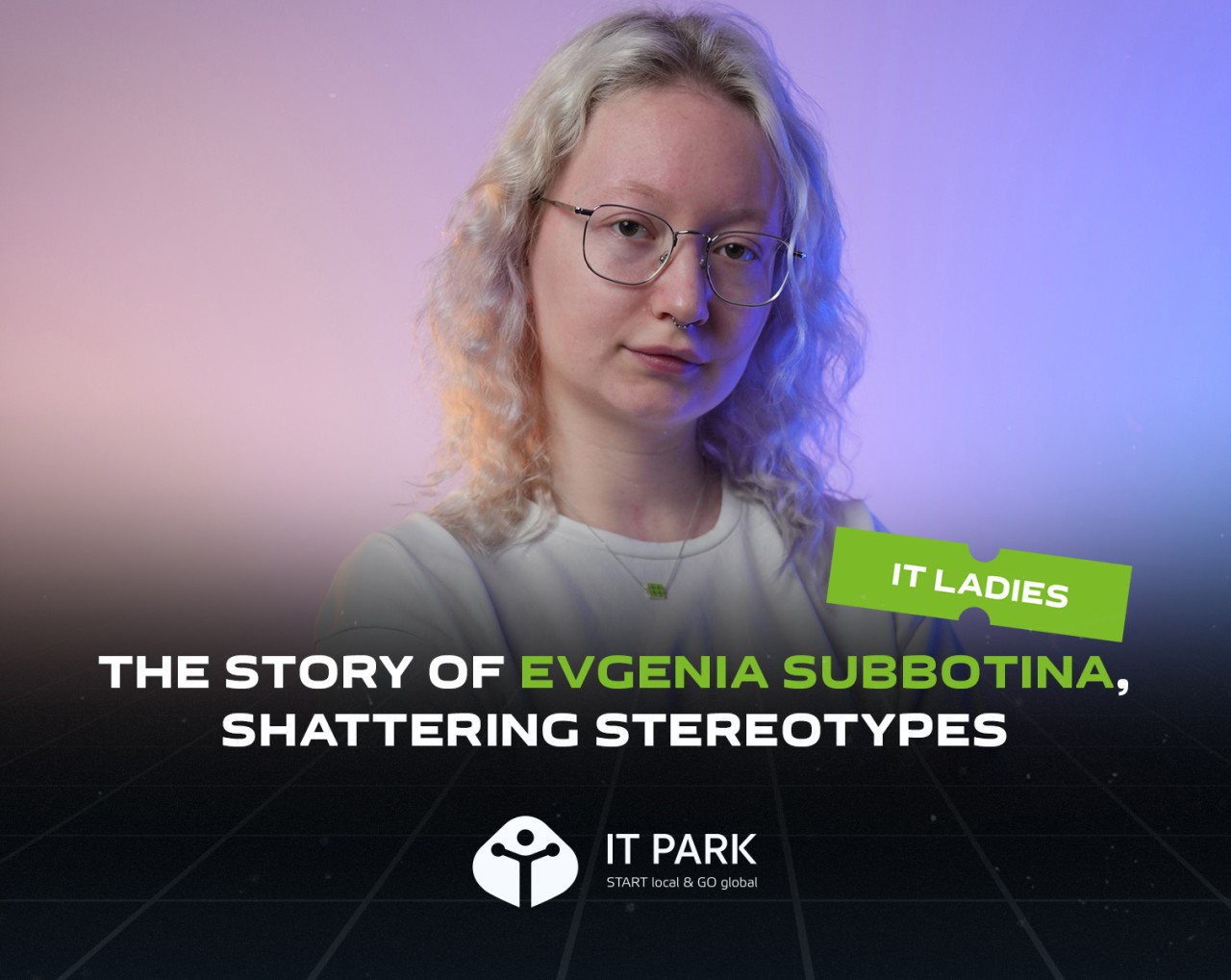
IT Ladies: The story of Evgenia Subbotina, shattering stereotypes
In our time, young women still encounter outdated stereotypes asserting that the field of information technology is not suitable for them. Twenty-year-old Evgenia Subbotina is one of those actively dismantling these myths and proving that success in IT is not dependent on gender.
Born in Tashkent, Evgenia pursued her education in Moscow and resided and worked in Germany for a period. Presently, she serves as an Android developer at the Uzum holding.
In an interview with IT Park, Evgenia shared her thoughts on gender equality in the IT industry, as well as recounted her journey into the world of technology and her plans for the future.
On the commencement of journey in the IT industry
My computer science teacher at School No. 60 in Tashkent, Sergey Alexandrovich Krylov, succeeded in fostering an enthusiasm for programming within me as well as many other pupils. Under his guidance, a computer science club was established at the school, and all its participants achieved top positions in state-level competitions.
Then, I enrolled at RWTH Aachen University (Technical University in the German city of Aachen) in the Faculty of Applied Computer Science, where I studied for a year. Currently, I am pursuing software engineering at the Higher School of Economics in Moscow and working at Uzum Technologies, where I am involved in developing new features for the application, automating assembly, and so forth.
Regarding the most significant professional accomplishments and qualities
Over the course of three years in my career, I have had the opportunity to work in various companies, including outsourcing projects. Each task presented has been engaging and has contributed to my growth as a professional. While in Germany, I engaged in Flutter development at a German startup. Communicating with colleagues and clients in a foreign language proved to be an enriching experience.
Last year, while employed at VK, I participated in collaborative efforts for the development of the voice assistant "Marusya." This experience greatly inspired me. I came to realize I have a keen interest in working with sound and video and it is one of the domains which truly captivates me as a developer.
During this period, I was invited to assume the role of an instructor at the Sirius Scientific and Technological University in Sochi, which specializes in the development and support of talented youth.
Currently, I have a preference for employment within substantial product-oriented companies. Over the span of several years, I have advanced to the level of a middle+ developer. This year, I strive for the attainment of a senior-level. In the future, I aspire to cultivate management skills to emerge as a team leader.
Regarding the changes and emerging technologies in the IT sphere
In my field, changes occur at a rapid pace, necessitating a grasp of all Android versions, which proves advantageous in my work. I am always open to new technologies, but regrettably, in sizable product-oriented companies, the opportunity to be among the first to explore diverse frameworks and test novel alterations isn't always available. The implementation of such solutions necessitates approvals at various tiers of the organization.
Among the recent developments, I am particularly intrigued by voice smart assistants and virtual reality. I am confident that in the near future, these technologies will find extensive applications.
On the Role of Women in IT
History knows Ada Lovelace, who created binary code, authored the first computer program, and introduced fundamental concepts in programming. Nevertheless, some individuals still cling to the belief that technical fields are not suitable for women.
I have participated in numerous surveys and studies concerning women in IT. Regrettably, certain young women continue to encounter disdain and social pressures, including those stemming from their parents.
My mother also feared that I would be confined to a dull office space surrounded by numerous stereotypical programmers, who do not communicate with people and sloppy.
In reality, within the realm of programming and in leading large-scale companies, it was partially possible to address gender inequality and evaluation of professionals based on gender. This is a significant step forward.
We frequently encounter positive examples of female professionals and consequently deduce that women in IT face no challenges. However, in my view, this is a "survivor's mistake," as we remain unaware of those young women who were unable to overcome stereotypes and self-doubt.
I work extensively with girls and women, and I am inspired by the success of each one of them. On the whole, I find inspiration in every programmer who strives to enhance the lives of users.
Moreover, I believe that the implementation of gender quotas is a positive step, which finds its reflection in global practices, despite the presence of vigorous debates surrounding this topic.
Biologist Anne Fausto-Sterling has proven that the low percentage of women in programming is not predicated on biological traits of brain or genetics. Instead, it is more of a societal issue that demands resolution. The paramount task is to eliminate bias and dispel myths that persist to this day.
Beyond my professional circle, numerous stereotypes about women in IT exist. Nonetheless, within the workplace, I am perceived on par with other colleagues. I have not encountered overt doubts regarding my abilities.
Advice for young women aspiring to build a career in IT
Regarding professional attributes, it is crucial to exhibit reliability and possess strong communicative skills to effectively operate within a team and engage with others. Proficiency in time management is essential. Of course, possessing profound expertise within one's industry is also necessary.
In addition, one should strive to attend as many professional events as possible, maintain a healthy work-life balance, remain proactive, and pose as many questions as feasible. There is no need to hesitate in seeking assistance if the need arises.
2023-08-23